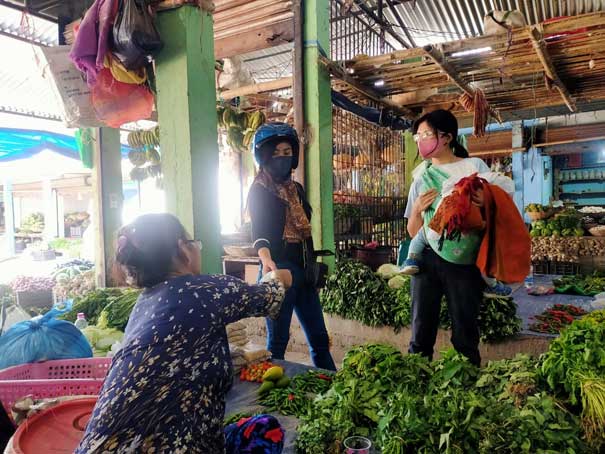[Chukhu Indu]
ITANAGAR, 7 Mar: As the entire nation will be celebrating International Women’s Day (IWD) 2022 on 8 March with the theme ‘Gender equality for a sustainable tomorrow’, this reporter went to the vegetable market in Doimukh, where most of the sheds are run by women.
When this reporter asked the women there whether they knew something about the celebration, they said that they were not aware of it. Most of the women, who solely sell vegetables, without any other extra source of income, said that they have never celebrated IWD. They said that they got to know about the event a day or two ago, without knowing the date of the event.
One of the women, who also works as an anganwadi worker besides selling vegetables, said that she would be attending the event as she has been asked by her department.
A woman from Lower Subansiri district, who pitched her shop a couple of months ago, recalled attending an IWD celebration organised by a church.
Another woman, Tako Bui, who is in her early 50s and has been selling local vegetables for about six years, said that she would be joining the celebration, describing it as a “meeting.” She said that she has been invited by a gram sabha member after she joined an SHG.
The women run their vegetable trade from 7 am to 8 pm. While most of the women said that their husbands and kids support them, one woman, who pitched her shop a couple of months ago, said she can no longer work in the field due to her illness and had to take up this job as her husband has married another woman over her. Had it not been for polygamy, she would have been in her village and not migrated to the town. After her husband married another woman, she had no option but to stay separately.
She had studied up to Class 6 before being married off. She yearns for a different future for her kids.
Another woman, who has been selling vegetables in the market for about 15 years, said she is the bread winner of her family. With the little money she earns selling vegetables, she looks after her three children – the eldest of them is in college now – along with her husband.
She said that, during the absence of her husband, who does not have a regular job, is unskilled, and was in a private company earlier, her responsibility towards the children and the household becomes double. She has to look after the management of the entire house, but her husband supports her whenever he is in town by looking after the kids, she said.
The woman in her early 50s said: “Being a tribal family, we have a lot of relatives who stay with us. Although my husband has a government job, it is not sufficient to meet the monthly expenses.”
“My husband had eight siblings. We looked after all of them, except two. We also had our own children to look after,” she said.
Cleaning the vegetables and bundling them up for sale, she said that this business is one of the most difficult ones. “No time to rest and eat food. Those who are lazy will never be able to do this,” she said.
Thrice a week, groups of these women vendors go to the market in Harmutty, Assam, leaving home at 3 am, to buy vegetables wholesale.
All of these women – young, middle-aged, and old – have their own stories to tell, but sadly, as the world celebrates International Women’s Day, these women will have to carry on with their chores and will have no time to spare to celebrate the day.
As a woman who has been abandoned by her husband said, “If I attend the celebration, my shop will see no business, and income is hard to come by.”



